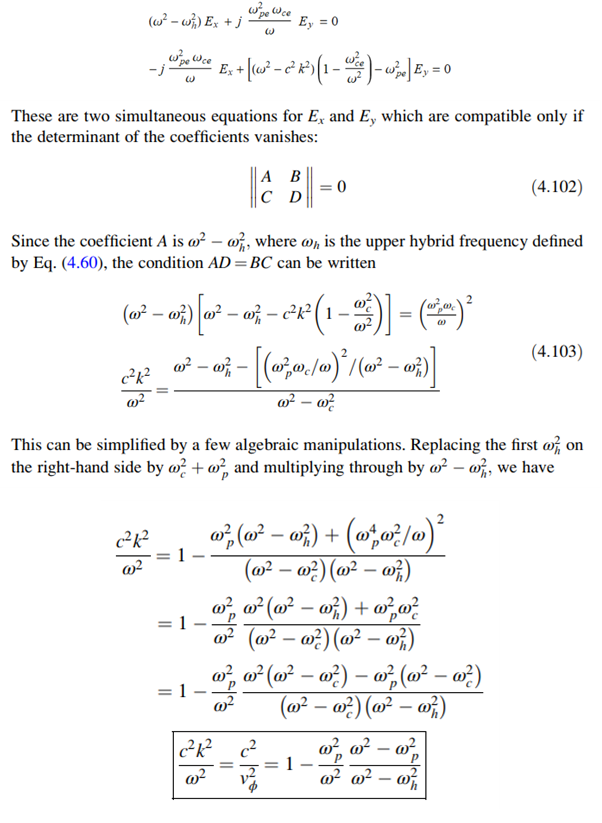I am a newbie in Mathematica, and I want to know how to manipulate and derive an equation. The equation I want to obtain is as shown on the image. I've tried Solve, Simplify, FindRoot, Expand, Reduce and others but I can't seem to find the answer. I included the code I wrote below.
- I transformed the 2 equations into ABCD matrix of Ex and Ey
- As Ex and Ey only have solutions when the matrix determinant is zero (Det[m]==0 or AD=BC), I tried to include that in the code but to no avail.
- I want the final output to be in the form shown inside the square
Please kindly help me with this problem. I have been having similar problems but if I can manage to solve this one I think I'll be able to solve the others too.
ClearAll["Global`*"]
m = {{\[Omega]^2 - \[Omega]h^2,
j (\[Omega]pe^2 \[Omega]ce)/\[Omega]}, {-j (\[Omega]pe^2 \
\[Omega]ce)/\[Omega], (\[Omega]^2 -
c^2 k^2) (1 - \[Omega]ce^2/\[Omega]^2) - \[Omega]pe^2}};
a = m /. \[Omega]h^2 -> \[Omega]pe^2 + \[Omega]ce^2;
(*LogicalExpand[a\[Equal]0]*)
Reduce[Det[a] == 0, {c, k}]





NullSpaceof that matrix after forcing the determinant to be zero (that null vector will give your solutions up to scaling). Could dosolns = Solve[Det[a] == 0, c]; NullSpace[a /. solns[[1]]]$\endgroup$